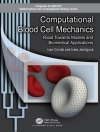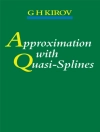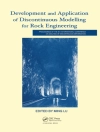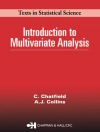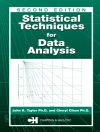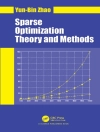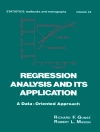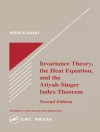A complete, self-contained introduction to a powerful and resurging mathematical discipline
Combinatorial Geometry presents and explains with complete proofs some of the most important results and methods of this relatively young mathematical discipline, started by Minkowski, Fejes Tóth, Rogers, and Erd’s. Nearly half the results presented in this book were discovered over the past twenty years, and most have never before appeared in any monograph. Combinatorial Geometry will be of particular interest to mathematicians, computer scientists, physicists, and materials scientists interested in computational geometry, robotics, scene analysis, and computer-aided design. It is also a superb textbook, complete with end-of-chapter problems and hints to their solutions that help students clarify their understanding and test their mastery of the material. Topics covered include:
* Geometric number theory
* Packing and covering with congruent convex disks
* Extremal graph and hypergraph theory
* Distribution of distances among finitely many points
* Epsilon-nets and Vapnik–Chervonenkis dimension
* Geometric graph theory
* Geometric discrepancy theory
* And much more
Tabella dei contenuti
ARRANGEMENTS OF CONVEX SETS.
Geometry of Numbers.
Approximation of a Convex Set by Polygons.
Packing and Covering with Congruent Convex Discs.
Lattice Packing and Lattice Covering.
The Method of Cell Decomposition.
Methods of Blichfeldt and Rogers.
Efficient Random Arrangements.
Circle Packings and Planar Graphs.
ARRANGEMENTS OF POINTS AND LINES.
Extremal Graph Theory.
Repeated Distances in Space.
Arrangement of Lines.
Applications of the Bounds on Incidences.
More on Repeated Distances.
Geometric Graphs.
Epsilon Nets and Transversals of Hypergraphs.
Geometric Discrepancy.
Hints to Exercises.
Bibliography.
Indexes.
Circa l’autore
JANOS PACH is Professor of Computer Science at City College of New York and Senior Research Fellow at the Mathematical Institute of the Hungarian Academy of Sciences. He received his Ph D in mathematics from Eotvos University, Budapest, in 1980 and has had visiting positions at various universities, including the University College of London, Mc Gill University, the Courant Institute of New York University, and Tel Aviv University. He serves on the editorial boards of three mathematical and computer science journals and has been an invited speaker at many conferences. He has published more than one hundred research papers, mostly in discrete and computational geometry and in combinatorics. He received the Lester R. Ford Award in 1990 and the Renyi Prize in 1993.
PANKAJ K. AGARWAL is Associate Professor in the Computer Science Department of Duke University. He received his Ph D in computer science from the Courant Institute of Mathematical Sciences, New York University, in 1989. He is the author of Intersection and Decomposition Algorithms for Planar Arrangements, and a coauthor of Davenport-Schinzel Sequences and Their Geometric Applications. He has published several research papers and has given talks at many conferences. He was awarded the National Young Investigator Award in 1992.


